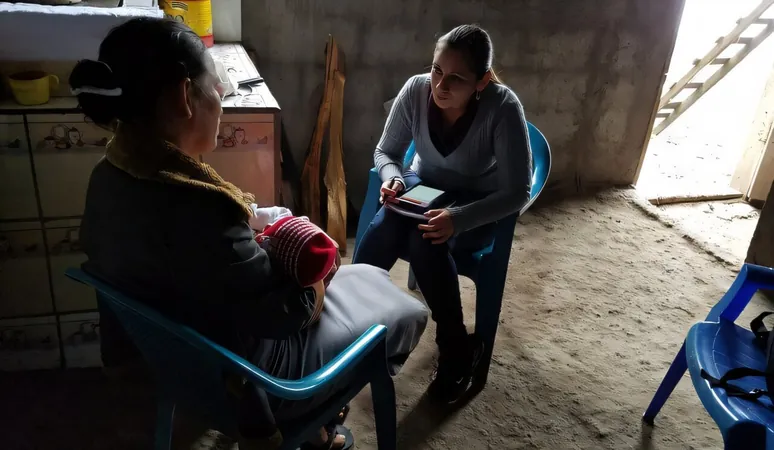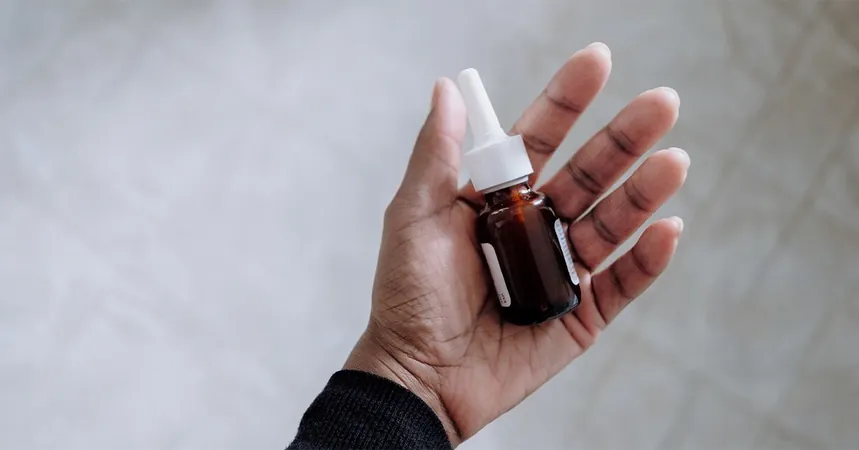
How Your Friends Might Be Influencing Your Gut Health!
2024-11-20
Author: Amelia
Recent research led by Yale University has unveiled a surprising link between social connections and our microbiomes—the communities of microorganisms residing in our guts. The study highlights that the people we socialize with may not only share interests and lifestyles but also a strikingly similar makeup of gut bacteria.
Published in the esteemed journal *Nature*, the research analyzed the social networks of 1,787 adults from 18 isolated villages in Honduras, revealing groundbreaking insights into how our microbes can be influenced by social interactions. The comprehensive database covered an astonishing 2,543 microbial species and 339,137 different strains.
The key finding? Individuals connected through various relationship types—including friends and acquaintances—exhibited microbiome similarities that surpassed random chance. As co-lead author Francesco Beghini noted, “Microbiome sharing was the strongest predictor of social relationships in the villages we studied,” indicating that factors such as wealth, education, or religion pale in comparison to the impact of social interactions on gut health.
Interestingly, while spouses and household members showed the highest rates of microbial sharing, even friendships and second-degree connections (friends of friends) displayed notable similarities in their microbial make-up. Furthermore, those situated at the center of social networks possessed more common microbiomes than those on the outskirts, suggesting an active microbial exchange occurring within tight-knit community ties.
The study examined not only who spends time together, but how interactions occur—like shaking hands or sharing meals—further influencing microbial sharing. Conversely, a lack of social relationships within the same village resulted in significantly reduced microbiome similarities, indicating that isolation severely impacts gut health.
To solidify their findings, researchers revisited a subset of 301 participants two years later and discovered that social connections had led to increased microbial similarity among them. The study also unveiled clusters of specific microbial species forming within groups of friends, illustrating that social dynamics create environments where similar gut bacteria thrive.
The implications of these findings are profound. On one hand, they suggest that certain diseases linked to the microbiome may be more easily communicable through our social ties than we realized. On the other hand, the potential health benefits associated with a robust microbiome could also be shared among friends and social groups.
“This research shows just how interconnected we truly are,” states co-lead author Jackson Pullman. “Our connections extend not merely through social networks but all the way down to the microscopic level of our gut bacteria.”
Nicholas Christakis, the study’s senior author and director of Yale’s Human Nature Lab, emphasizes that the notion of biological contagion—where health traits spread through social circles—is a theory his lab has been pursuing for years. “Just as we might spread ideas or behaviors, we may be sharing health-related microbes,” he explains.
These groundbreaking findings invite us to reconsider our social interactions not just as casual or leisurely but as potential catalysts for our health, provoking the question: Are your friends contributing to your well-being in ways you never imagined?
This research opens doors to new avenues in health and microbiome studies, indicating that merely surrounding ourselves with healthier individuals can have a measurable impact on our gut health and overall well-being. Stay tuned as we explore more about the fascinating connections between social life and our internal ecosystems!









 Brasil (PT)
Brasil (PT)
 Canada (EN)
Canada (EN)
 Chile (ES)
Chile (ES)
 España (ES)
España (ES)
 France (FR)
France (FR)
 Hong Kong (EN)
Hong Kong (EN)
 Italia (IT)
Italia (IT)
 日本 (JA)
日本 (JA)
 Magyarország (HU)
Magyarország (HU)
 Norge (NO)
Norge (NO)
 Polska (PL)
Polska (PL)
 Schweiz (DE)
Schweiz (DE)
 Singapore (EN)
Singapore (EN)
 Sverige (SV)
Sverige (SV)
 Suomi (FI)
Suomi (FI)
 Türkiye (TR)
Türkiye (TR)